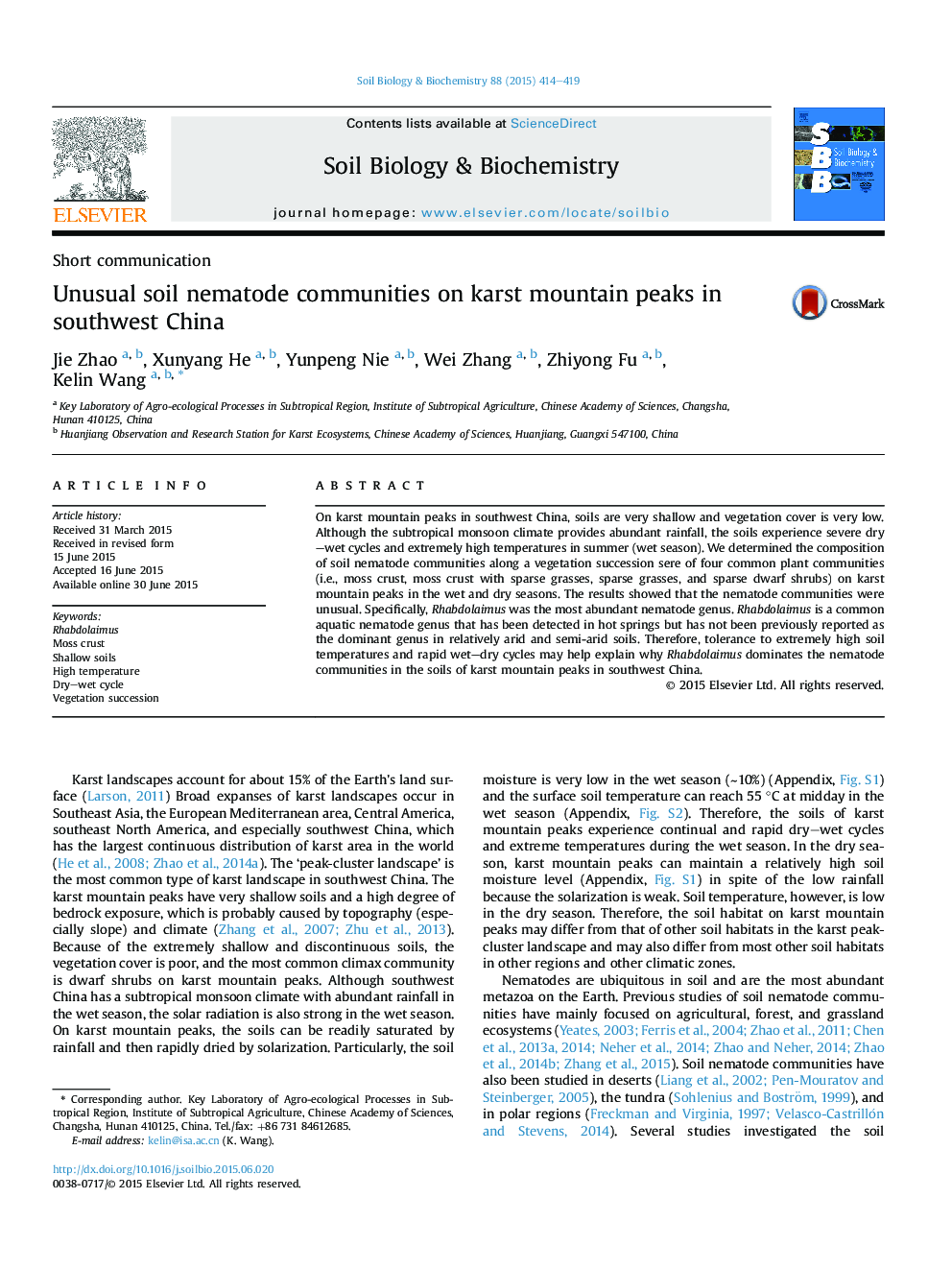| Article ID | Journal | Published Year | Pages | File Type |
|---|---|---|---|---|
| 8364101 | Soil Biology and Biochemistry | 2015 | 6 Pages |
Abstract
On karst mountain peaks in southwest China, soils are very shallow and vegetation cover is very low. Although the subtropical monsoon climate provides abundant rainfall, the soils experience severe dry-wet cycles and extremely high temperatures in summer (wet season). We determined the composition of soil nematode communities along a vegetation succession sere of four common plant communities (i.e., moss crust, moss crust with sparse grasses, sparse grasses, and sparse dwarf shrubs) on karst mountain peaks in the wet and dry seasons. The results showed that the nematode communities were unusual. Specifically, Rhabdolaimus was the most abundant nematode genus. Rhabdolaimus is a common aquatic nematode genus that has been detected in hot springs but has not been previously reported as the dominant genus in relatively arid and semi-arid soils. Therefore, tolerance to extremely high soil temperatures and rapid wet-dry cycles may help explain why Rhabdolaimus dominates the nematode communities in the soils of karst mountain peaks in southwest China.
Related Topics
Life Sciences
Agricultural and Biological Sciences
Soil Science
Authors
Jie Zhao, Xunyang He, Yunpeng Nie, Wei Zhang, Zhiyong Fu, Kelin Wang,
